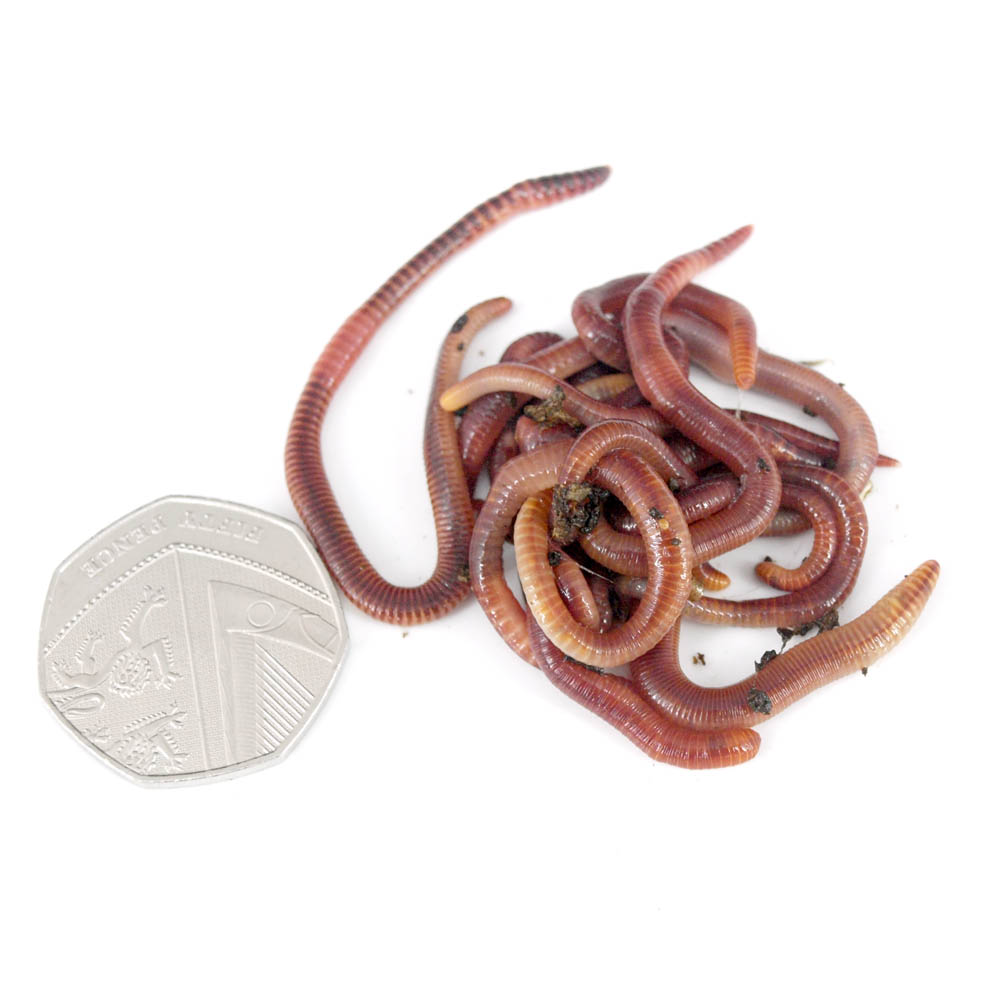Just composting worms, no bedding. It is essential that the worms are established in a bedding material not just waste food, see ‘Bedding material’ or, alternatively, ‘Worms and bedding kits’ that include both worms and bedding material combined.
Classification of worms in general is very complicated, simply put, the worms used in vermicomposting are “composting or litter” worms as opposed to soil dwelling worms, they generally live above the soil surface in areas where decaying vegetation or organic materials have collected and it is this lifestyle that makes them so valuable.
At Worms Direct UK we have studied the behaviour and lifestyles of the most commonly sold native composting worm – Dendrobaena, a stripey worm, often but incorrectly sold as Tiger worms. It is related to the original and genuine Tiger worm also known as the Brandling. Until now the genuine Tiger worm has rarely been found for sale due to the difficulty in growing commercially. At Worms Direct we have sourced a supply of genuine Tiger worms and have now combined them with Dendrobaena in a superior worm composting mix which is proven to give a better overall composting performance than Dendrobaena alone.
As a very rough guide, on average there are around 2k worms to a kilo, however, it must be stressed that this number can vary considerably over different times of the year and the sizes currently available, hence the worms are sold strictly by weight.



Look ok so far
Nowhere near as many worms as I expected. I have ordered worms before and received much more.
Worms enjoying their new home.